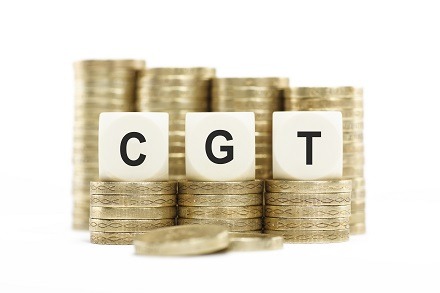Our tax team take a look at the latest Capital Gains Tax (CGT) figures published by HMRC and consider what the future holds for the tax.
In the 2019/20 tax year, 265,000 taxpayers paid £9.9 billion of Capital Gains Tax. 3% more tax was paid by 6% fewer taxpayers than in the previous tax year.
When you dig into the figures, more than 40% of the £9.9 billion, came from those who made gains of £5 million or more. That group represents less than 1% of the number of CGT taxpayers.
More than 28% of CGT came from disposals that qualified for Entrepreneur’s Relief (ER). ER was claimed by 46,000 taxpayers on £28.9 billion of gains, resulting in a tax charge of £2.8 billion.
Entrepreneur’s Relief became Business Asset Disposal Relief (BADR) on April 6 2020 and continues to mean that taxpayers pay 10% capital gains tax on qualifying assets, usually the sale of all or part of their business, subject to a £1 million lifetime limit on gains.
The relief is intended to incentivise business owners to grow and invest in their business. If you are considering the material disposal of business assets, there are associated conditions that must be met to qualify for the relief. It is important that you seek high level tax planning advice at the earliest opportunity. If you would like to talk with our team, without obligation, please do get in touch with Craig Simpson or Richard Coombs.
Many commentators believe that BADR is likely to change again, as both political parties have it in their sights. The Office of Tax Simplification’s review into CGT, considered that BADR was “mistargeted”, believing that rather than encouraging investment during the development of a business its primary purpose was to recognise years of constant investment, rewarding business owners on retirement. It suggested that there could be more effective ways of doing this including:
- Increasing the maximum shareholding to 25%, giving the relief to owner managers only rather than to a broader class of employees
- Increasing the holding period to 10 years
- Reintroducing an age limit, perhaps reflecting pension ages
However, when the Government published its response to the OTS review, of the 14 recommendations made, only 5 were accepted. 5 more were to be given further consideration and the remaining 4 were rejected. Richard Coombs gave more details in his recent blog. BADR was included in a recommendation centred around improving guidance, but no specific changes were included.
Richard believes the Government response to the CGT review to be something of a “damp squib”, but this is generally a good thing when it comes to tax reform. That said, given the amount of scrutiny CGT and Business Asset Disposal Relief in particular has been under recently, it is likely that further changes will come.
“It is never too early to consider how you plan to exit your company. Tax planning is a key tool in making that strategy tax efficient”.

